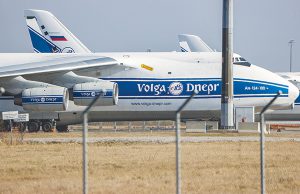Bloomberg
Airlines are seeing prospects for a strong profit rebound from two years of coronavirus turmoil rapidly slip away after the price of oil reached $125 a barrel.
An oil shock triggered by Russia’s war in Ukraine is the latest blow to carriers that have already had to cancel flights and reroute long-haul journeys to avoid shuttered airspace. The price of crude spiked after the US said it would consider a boycott of Russian supplies.
Earnings are at risk in Europe, where higher fuel costs will add to widespread flight disruption, while carriers in the US and Asia are largely unhedged and will feel the full impact of price rises.
Airline shares tumbled in all three regions, extending losses that have been piling up for the past several weeks. Oil neared $140 a barrel at one point after the US said it was mulling a ban on Russian crude imports.
Wizz Air Holdings Plc, the biggest discount carrier in eastern Europe, reversed its no-hedging policy to protect from further increases in oil prices. The hedges will cap fuel-cost exposure for the next four months.
The Hungarian airline had already been cut off from Ukraine — one of its fastest-growing markets, and where four of its aircraft are trapped — and Russia’s second city of St Petersburg. It will now limit its expansion plans this summer.
Other European airlines are feeling the pinch, with No. 1 discounter Ryanair Holdings Plc and German giant Deutsche Lufthansa AG altering schedules. Surplus jets will be redeployed into Western Europe, setting up a supply-demand imbalance. That threatens to hurt ticket prices in a peak summer season on which travel firms have been pinning hopes for a rebound.
More Losses
Before the Ukraine conflict, the International Air Transport Association was considering revising its estimate issued last October for industry-wide losses of $11.6 billion this year, potentially narrowing the figure. That now seems unlikely.
In Asia, China Southern Airlines Co, the country’s largest carrier, closed 8.3% lower. The slump continued in European trading hours as Wizz Air dropped as much as 16% before paring its losses to finish down 6.6%.
Discount rivals Ryanair and EasyJet Plc lost 7.9% and 7.5% respectively.
“Investors believe that airlines will likely pass on the spike in crude costs to consumers in the form of fuel surcharge but are worried about the price elasticity of demand,†Citigroup analysts said.
Jet-fuel prices have surged 50% year-to-date and are 74% above 2019 levels.
Long-haul carriers in particular might now find it “very hard to get through 2022†without a return to equity fundraising, something that will be tougher for those that lack government shareholders.
 The Gulf Time Newspaper One of the finest business newspapers in the UAE brought to you by our professional writers and editors.
The Gulf Time Newspaper One of the finest business newspapers in the UAE brought to you by our professional writers and editors.
